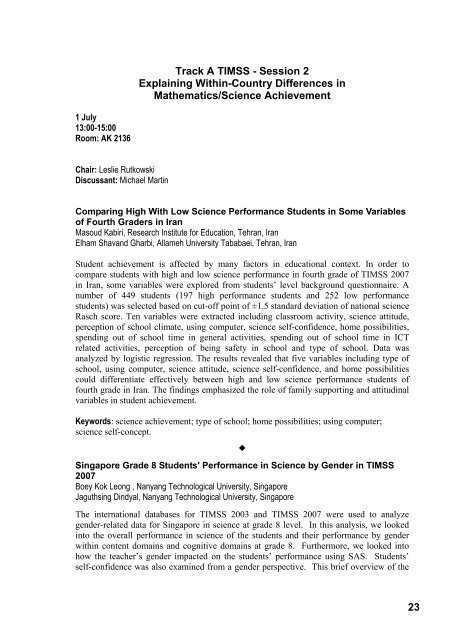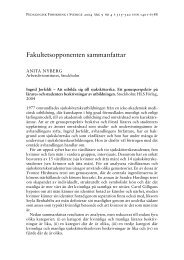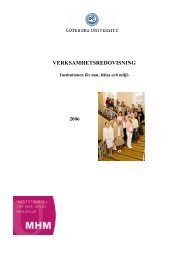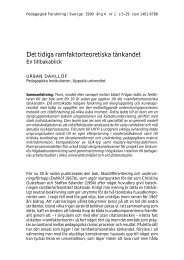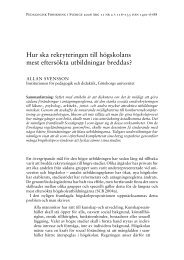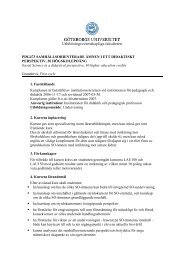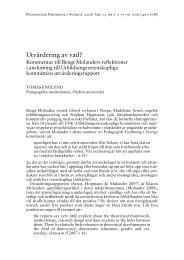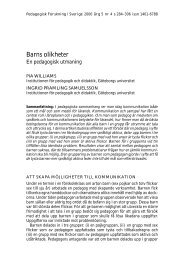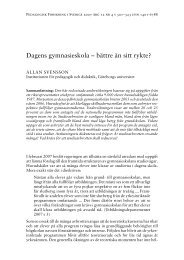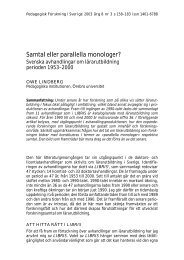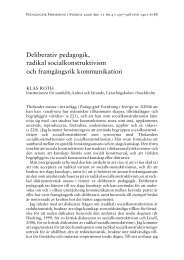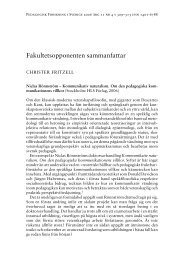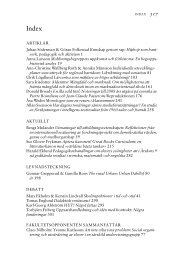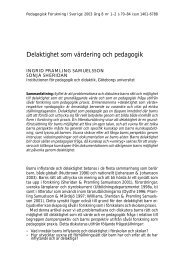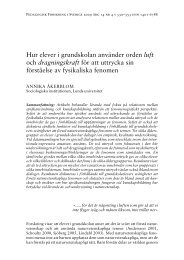University of Oslo Workshops June 29-30 Conference July 1-3 ...
University of Oslo Workshops June 29-30 Conference July 1-3 ...
University of Oslo Workshops June 29-30 Conference July 1-3 ...
You also want an ePaper? Increase the reach of your titles
YUMPU automatically turns print PDFs into web optimized ePapers that Google loves.
Track A TIMSS - Session 2<br />
Explaining Within-Country Differences in<br />
Mathematics/Science Achievement<br />
1 <strong>July</strong><br />
13:00-15:00<br />
Room: AK 2136<br />
Chair: Leslie Rutkowski<br />
Discussant: Michael Martin<br />
Comparing High With Low Science Performance Students in Some Variables<br />
<strong>of</strong> Fourth Graders in Iran<br />
Masoud Kabiri, Research Institute for Education, Tehran, Iran<br />
Elham Shavand Gharbi, Allameh <strong>University</strong> Tababaei, Tehran, Iran<br />
Student achievement is affected by many factors in educational context. In order to<br />
compare students with high and low science performance in fourth grade <strong>of</strong> TIMSS 2007<br />
in Iran, some variables were explored from students’ level background questionnaire. A<br />
number <strong>of</strong> 449 students (197 high performance students and 252 low performance<br />
students) was selected based on cut-<strong>of</strong>f point <strong>of</strong> ±1.5 standard deviation <strong>of</strong> national science<br />
Rasch score. Ten variables were extracted including classroom activity, science attitude,<br />
perception <strong>of</strong> school climate, using computer, science self-confidence, home possibilities,<br />
spending out <strong>of</strong> school time in general activities, spending out <strong>of</strong> school time in ICT<br />
related activities, perception <strong>of</strong> being safety in school and type <strong>of</strong> school. Data was<br />
analyzed by logistic regression. The results revealed that five variables including type <strong>of</strong><br />
school, using computer, science attitude, science self-confidence, and home possibilities<br />
could differentiate effectively between high and low science performance students <strong>of</strong><br />
fourth grade in Iran. The findings emphasized the role <strong>of</strong> family supporting and attitudinal<br />
variables in student achievement.<br />
Keywords: science achievement; type <strong>of</strong> school; home possibilities; using computer;<br />
science self-concept.<br />
Singapore Grade 8 Students' Performance in Science by Gender in TIMSS<br />
2007<br />
Boey Kok Leong , Nanyang Technological <strong>University</strong>, Singapore<br />
Jaguthsing Dindyal, Nanyang Technological <strong>University</strong>, Singapore<br />
<br />
The international databases for TIMSS 2003 and TIMSS 2007 were used to analyze<br />
gender-related data for Singapore in science at grade 8 level. In this analysis, we looked<br />
into the overall performance in science <strong>of</strong> the students and their performance by gender<br />
within content domains and cognitive domains at grade 8. Furthermore, we looked into<br />
how the teacher’s gender impacted on the students’ performance using SAS. Students’<br />
self-confidence was also examined from a gender perspective. This brief overview <strong>of</strong> the<br />
23


